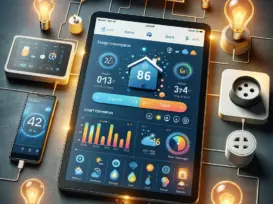Grus Home Energy - energy efficient home designs
Creating Sustainable and Energy Efficient Home Designs
In today’s world, there is a growing emphasis on sustainability and energy efficiency in all aspects of our lives, including our homes. As the effects of climate change become more apparent, many homeowners are looking for ways to reduce their carbon footprint and lower their energy bills. One of the most effective ways to achieve this is through the design and construction of energy efficient homes.
Energy efficient home designs are buildings that are specifically created to minimize energy consumption and maximize efficiency. These homes are designed to use less energy for heating, cooling, and lighting, resulting in lower energy bills and reduced environmental impact. There are several key elements to consider when designing an energy efficient home:
1. Proper Insulation:
One of the most important aspects of energy efficient home design is proper insulation. A well-insulated home will retain heat in the winter and keep cool in the summer, reducing the need for heating and air conditioning. Insulation can be added to walls, floors, and ceilings to create a barrier that prevents heat transfer.
2. Energy-Efficient Windows:
Windows are another critical element in energy efficient home design. Energy-efficient windows are designed to prevent heat loss in the winter and heat gain in the summer. These windows are typically double or triple-paned with low-emissivity coatings to reduce heat transfer. Additionally, proper sealing and weather-stripping around windows can help prevent drafts and air leakage.
3. High-Efficiency Heating and Cooling Systems:
Choosing the right heating and cooling systems is crucial for energy efficient homes. High-efficiency HVAC systems, such as heat pumps or geothermal systems, can significantly reduce energy consumption and lower utility bills. Proper maintenance of these systems is also essential to ensure optimal performance.
4. Energy-Efficient Appliances and Lighting:
Using energy-efficient appliances and lighting can further reduce energy consumption in a home. ENERGY STAR-rated appliances and LED light bulbs are excellent choices for energy efficient homes. These appliances and lighting fixtures use less energy than traditional models, saving money and reducing environmental impact.
5. Renewable Energy Sources:
Incorporating renewable energy sources, such as solar panels or wind turbines, can further enhance the energy efficiency of a home. These systems generate clean, renewable energy that can offset electricity usage from the grid. In some cases, homeowners can even sell excess energy back to the grid, further reducing energy costs.
Overall, energy efficient home designs are a smart investment for homeowners looking to reduce their environmental impact and save money on energy bills. By incorporating proper insulation, energy-efficient windows, high-efficiency heating and cooling systems, energy-efficient appliances and lighting, and renewable energy sources, homeowners can create a sustainable and comfortable living space for themselves and future generations.
Blog, Energy Savings & Cost Reduction , May 17, 2024 , efficiency housing, Electricity bill, energy audit, energy conservation techniques, Energy Consumption, energy efficient home designs, energy efficient homes, energy saving tips, home automations, home energy audit, Smart Home Automation, Smart Home Energy Management, Smart Home Security Systems
©2025 All Rights Reserved. Grus IoT Co.,Ltd.
